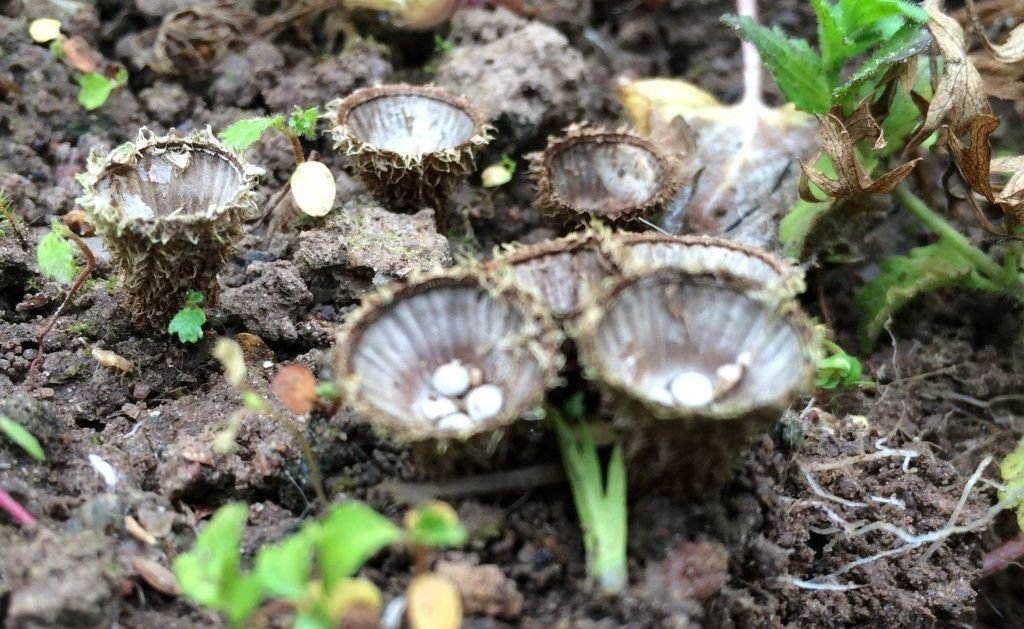Striped goblet (Cyathus striatus)
- Nkeji: Basidiomycota (Basidiomycetes)
- Nkebi: Agaricomycotina (Agaricomycetes)
- Klas: Agaricomycetes (Agaricomycetes)
- Klas: Agaricomycetidae (Agaricomycetes)
- Order: Agaricles (Agaric ma ọ bụ Lamellar)
- Ezinụlọ: Agaricaceae (Champignon)
- Genus: Cyatus (Kiatus)
- ụdị: Cyathus striatus (Striped goblet)
Description:
The fruiting body is about 1-1,5 cm high and about 1 cm in diameter, at first ovoid, round, closed, all fleecy-brown, then turns white on top, becomes cup-shaped, covered with a flat, light, whitish felt film (epipragma) with brown remains of the pile, which is pressed and torn, remaining partially on the inner walls, later open cup-shaped, cup-shaped, longitudinally striated inside, shiny, grayish with a light, grayish bottom, felt-hairy outside, red-brown or brown-brown with a thin fleecy edge, at the bottom with brownish or grayish, shiny, fading in dry weather, flattened small (2-3 mm) lentils (peridioli-spore storage), usually 4-6 pieces. Spore powder is white.
Flesh firm, tough
Kesaa:
The striped goblet grows from the end of July (massively in the second half of August) until October in deciduous and mixed forests, on rotted branches, deadwood, hardwood stumps, litter, on humus soil, near roads, in dense groups, rarely










